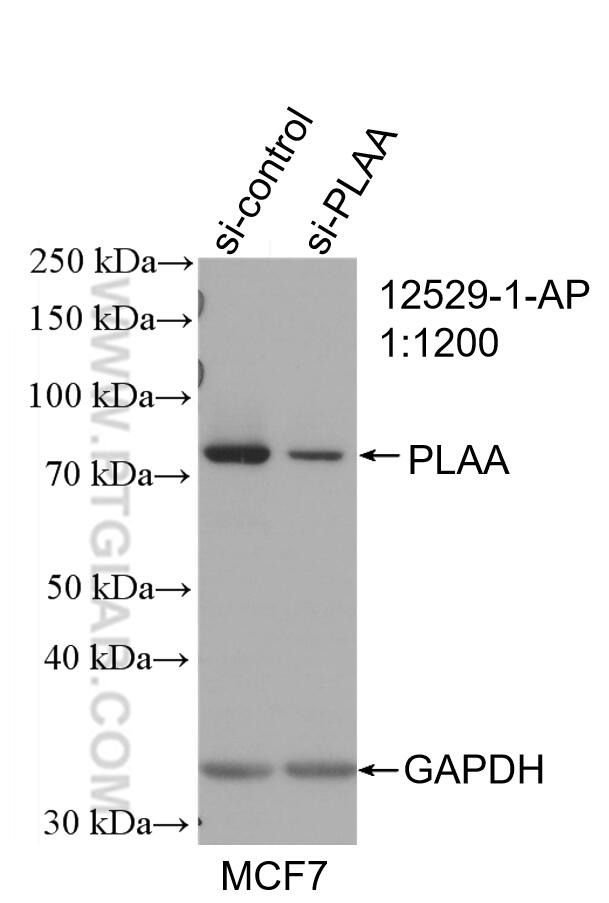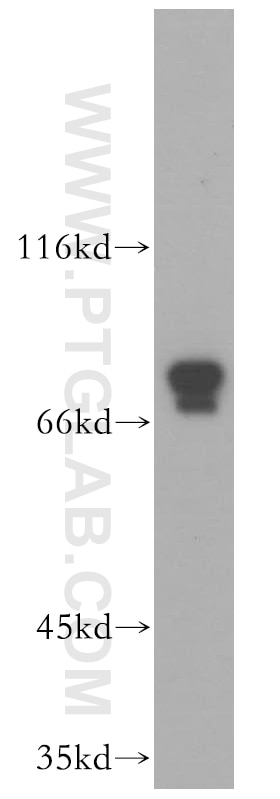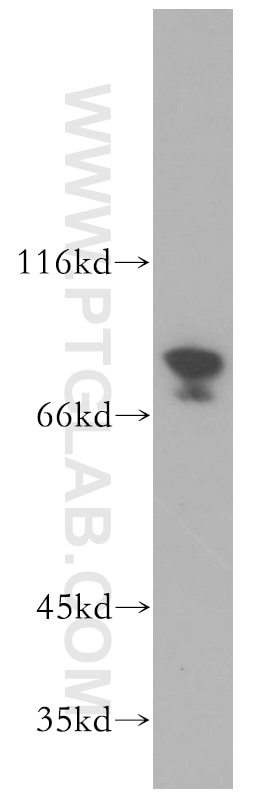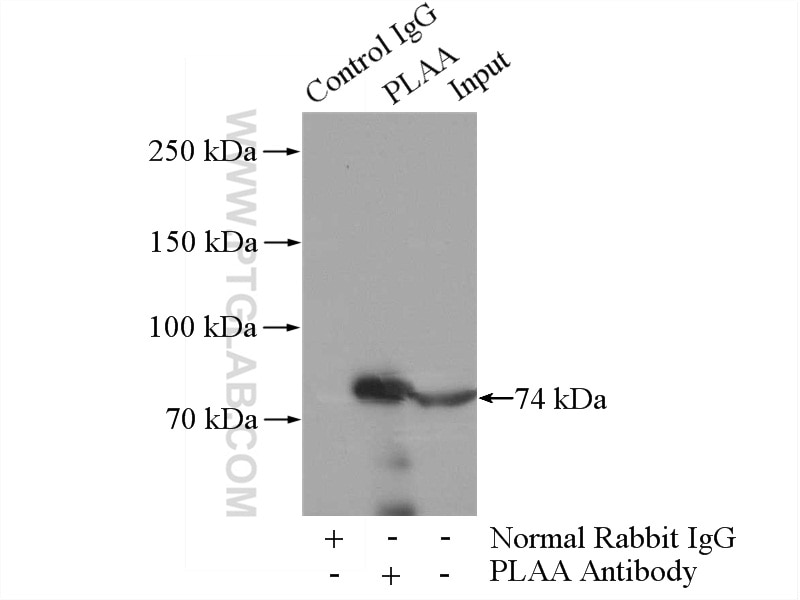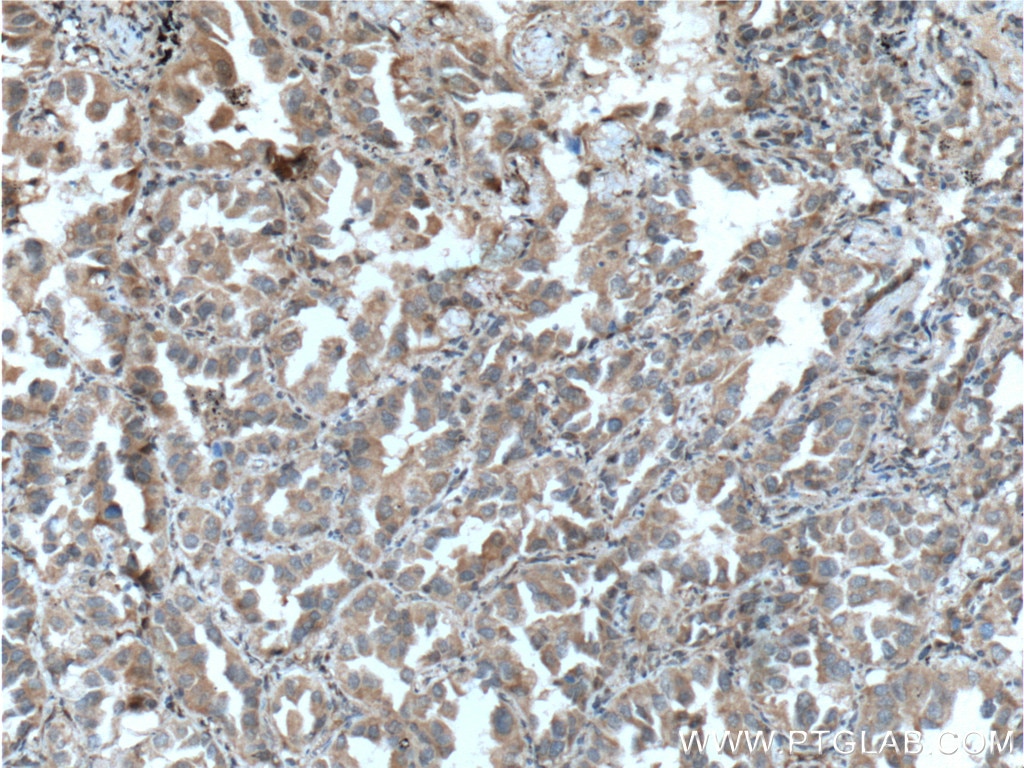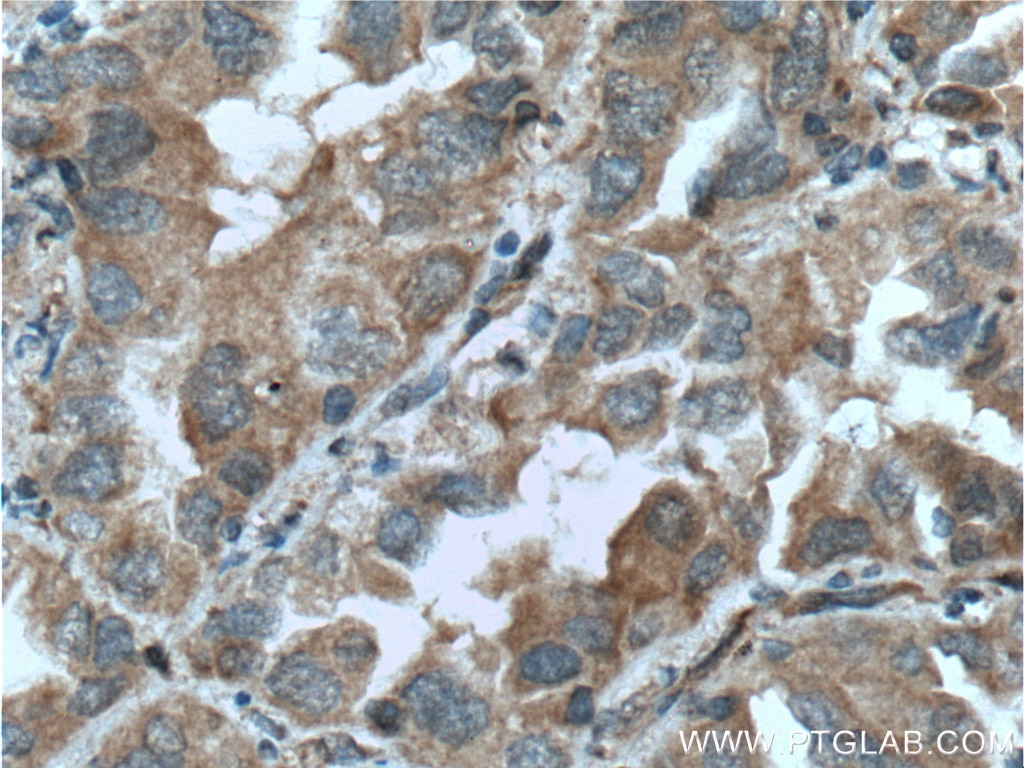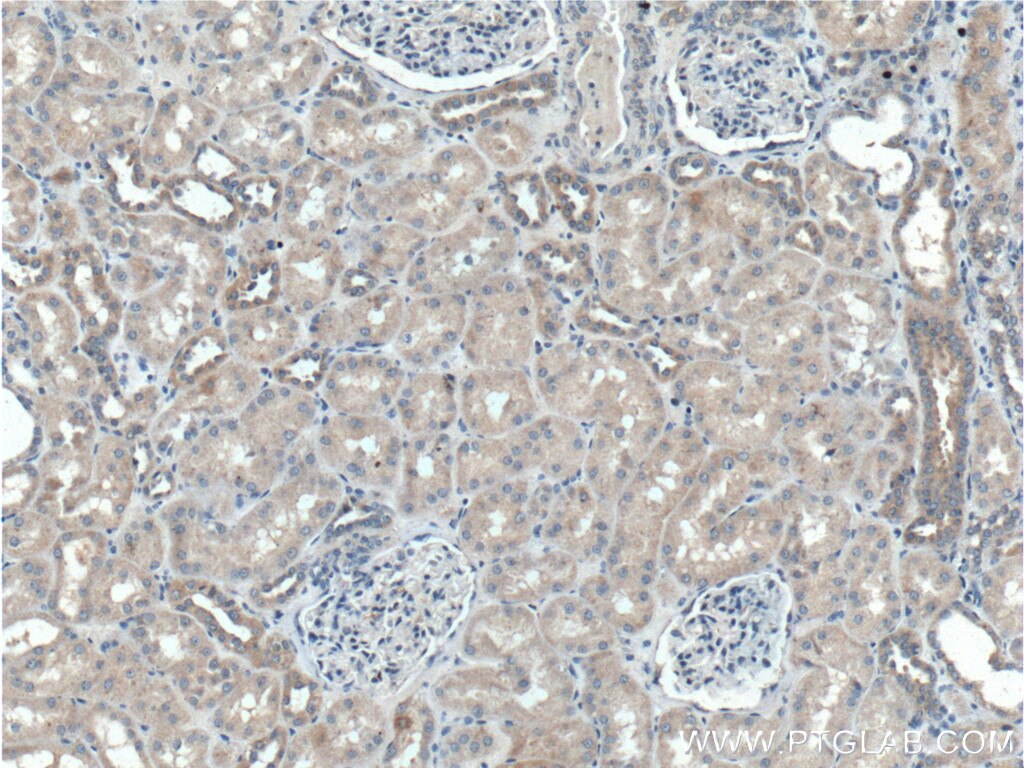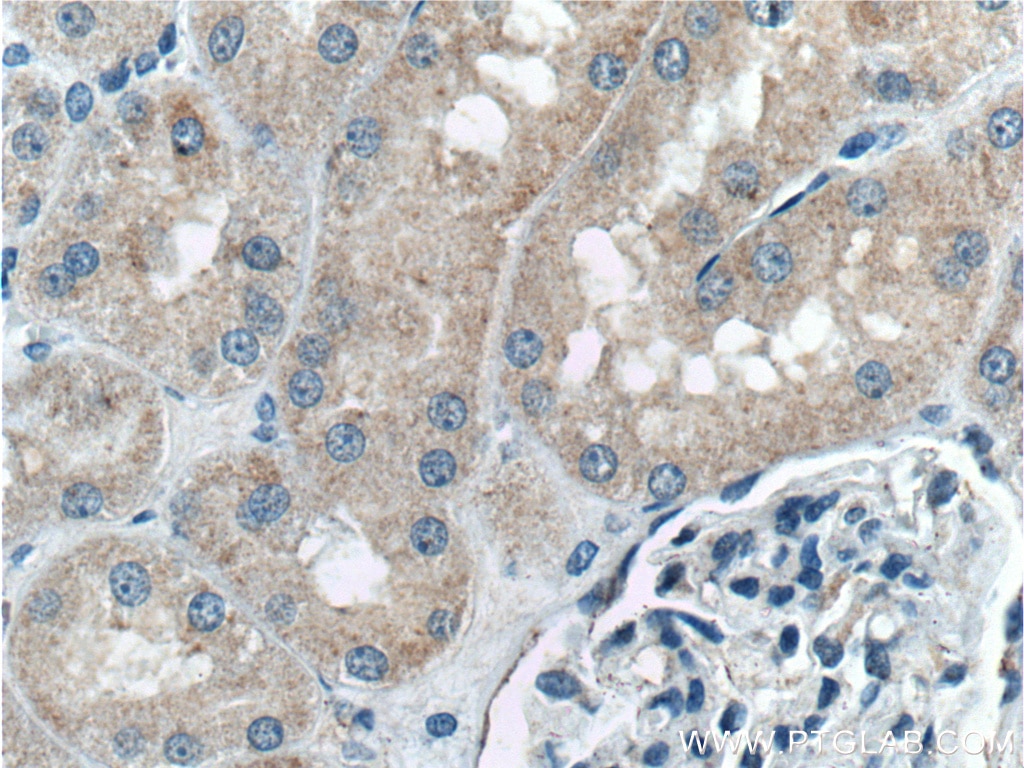- Featured Product
- KD/KO Validated
PLAA Polyklonaler Antikörper
PLAA Polyklonal Antikörper für WB, IP, IHC, ELISA
Wirt / Isotyp
Kaninchen / IgG
Getestete Reaktivität
human und mehr (1)
Anwendung
WB, IP, IF, IHC, ELISA
Konjugation
Unkonjugiert
Kat-Nr. : 12529-1-AP
Synonyme
Galerie der Validierungsdaten
Geprüfte Anwendungen
| Erfolgreiche Detektion in WB | K-562-Zellen, MCF-7-Zellen |
| Erfolgreiche IP | K-562-Zellen |
| Erfolgreiche Detektion in IHC | humanes Lungenkarzinomgewebe, humanes Nierengewebe Hinweis: Antigendemaskierung mit TE-Puffer pH 9,0 empfohlen. (*) Wahlweise kann die Antigendemaskierung auch mit Citratpuffer pH 6,0 erfolgen. |
Empfohlene Verdünnung
| Anwendung | Verdünnung |
|---|---|
| Western Blot (WB) | WB : 1:500-1:1000 |
| Immunpräzipitation (IP) | IP : 0.5-4.0 ug for 1.0-3.0 mg of total protein lysate |
| Immunhistochemie (IHC) | IHC : 1:50-1:500 |
| It is recommended that this reagent should be titrated in each testing system to obtain optimal results. | |
| Sample-dependent, check data in validation data gallery | |
Veröffentlichte Anwendungen
| KD/KO | See 1 publications below |
| WB | See 3 publications below |
| IHC | See 1 publications below |
| IF | See 1 publications below |
Produktinformation
12529-1-AP bindet in WB, IP, IF, IHC, ELISA PLAA und zeigt Reaktivität mit human
| Getestete Reaktivität | human |
| In Publikationen genannte Reaktivität | human, Maus |
| Wirt / Isotyp | Kaninchen / IgG |
| Klonalität | Polyklonal |
| Typ | Antikörper |
| Immunogen | PLAA fusion protein Ag3224 |
| Vollständiger Name | phospholipase A2-activating protein |
| Berechnetes Molekulargewicht | 738 aa, 81 kDa |
| Beobachtetes Molekulargewicht | 72-74 kDa |
| GenBank-Zugangsnummer | BC032551 |
| Gene symbol | PLAA |
| Gene ID (NCBI) | 9373 |
| Konjugation | Unkonjugiert |
| Form | Liquid |
| Reinigungsmethode | Antigen-Affinitätsreinigung |
| Lagerungspuffer | PBS mit 0.02% Natriumazid und 50% Glycerin pH 7.3. |
| Lagerungsbedingungen | Bei -20°C lagern. Nach dem Versand ein Jahr lang stabil Aliquotieren ist bei -20oC Lagerung nicht notwendig. 20ul Größen enthalten 0,1% BSA. |
Hintergrundinformationen
Phospholipase A-2-activating protein (PLAA), also named PLAP, can interact with ubiquitin and is involved in the maintenance of ubiquitin levels. PLAA contains multiple consensus domains including WD repeats, PFU domain and PUL domain. Although the function of PLAA remains unclear, ubiquitin binding of PLAA might be the central role that connects ubiquitination and degradation in ERAD. Recent finding revealed that PLAA served as a novel nociveptive mediator after incision, and its expression level is regulated by miR-203.
Protokolle
| Produktspezifische Protokolle | |
|---|---|
| WB protocol for PLAA antibody 12529-1-AP | Protokoll herunterladen |
| IHC protocol for PLAA antibody 12529-1-AP | Protokoll herunterladen |
| IP protocol for PLAA antibody 12529-1-AP | Protokoll herunterladen |
| Standard-Protokolle | |
|---|---|
| Klicken Sie hier, um unsere Standardprotokolle anzuzeigen |
Publikationen
| Species | Application | Title |
|---|---|---|
Anesthesiology miR-203 regulates nociceptive sensitization after incision by controlling phospholipase A2 activating protein expression. | ||
Biochim Biophys Acta Mol Cell Res Phospholipase A2-activating protein induces mitophagy trough anti-apoptotic MCL1-mediated NLRX1 oligomerization
| ||
Protein Cell Proteomic analysis of ferroptosis pathways reveals a role of CEPT1 in suppressing ferroptosis |
